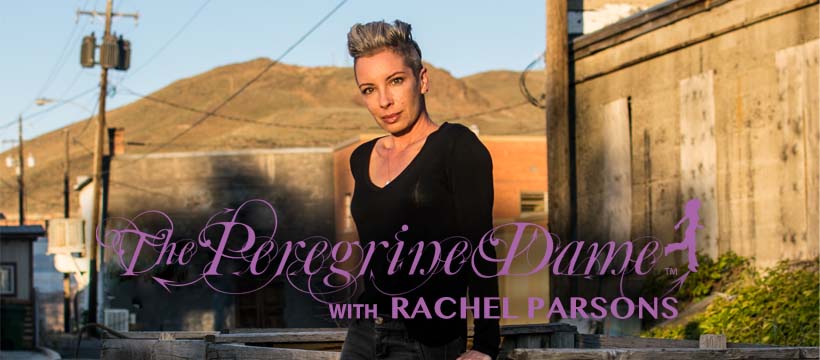The Elephants did the Whispering
Lawrence Anthony thought of killing every one of them. Of the hundreds of animals that belonged to the Baghdad Zoo, 35 were left, barely alive. They were dehydrated and starving by the time he got there shortly after the invasion of Iraq in 2003. Anthony was afraid that none of them would survive in the war zone.
But the enormous white South African conservationist, standing 6’3” with a Santa Claus beard and a penchant for baseball caps, joined the struggling zoo veterinarian -- who didn’t know Anthony was coming. They, along with the few remaining staff members, and several U.S. soldiers who volunteered to help, saved all of the animals.
“I thought he was going to be gone for three weeks,” said Francoise Malby-Anthony, in a thick, Parisian accent about her husband’s time in Iraq. “He was gone for six months. Lawrence was an adventurer.”
After spending half a year in Baghdad, the self-made wildlife expert wrote an international bestselling book about his experience, called “Babylon’s Ark.” He followed with another bestseller, “The Elephant Whisperer.”
Then, in March 2012, Lawrence Anthony suffered his third and final heart attack. It happened one month before the launch of his third book, “The Last Rhinos,” which details his last effort to stem the poaching of rhinoceros horn for trade in the Far East. On the black market an ounce of horn -- used in traditional oriental medicine -- can fetch more than $1,600.
“This is a call to arms to all, to join us in a final battle to save the rhinos,” Anthony said in his last interview, nine days before he died. “Because as South Africans, this is our heritage. Our rhinos are going to be gone.”
“Lawrence was an exceptional person,” said Dr. Ben Ngubane, a close friend of Anthony’s and former Minister of Arts, Culture and Technology under President Nelson Mandela. “Even in the old days of apartheid when black and white had to be separated by law, he crossed that boundary. Lawrence could sit with the Zulu people at the traditional ceremonies, sitting there on the ground. It was natural for him. And so the people learned to value the animals; they no longer poached at Thula Thula. If there was anyone who did, others would report that person. That was a gift of Lawrence.”
Some boundaries Anthony crossed drew fire, literally and metaphorically. Not one to shy away from a war zone, he infamously met with high-ranking members of the Lord’s Resistance Army, including Vincent Otti, in 2007 to negotiate the protection of the last four Northern White Rhinos left in the wild in Garamba National Park in the Democratic Republic of Congo, where the LRA had taken control.
Some in other conservation groups viewed his willingness to reach out to people wanted for war crimes as heinous. “When you do the sort of work I do, you'll always get criticized,” Anthony told The Observer in 2009. “When I explained [to the LRA] there were only four rhinos left in the wild they were genuinely shocked. “They thought there were still hundreds of them.”
His effort paid off. The LRA agreed to the protection of the animals in the succeeding cease-fire agreement with the Ugandan government.
Before turning conservation into his profession, Anthony had been an entrepreneur, working in real estate in Durban, keeping his passion for wildlife an avocation until his late 40s when he and Francoise had the chance to buy 5,000 acres of bush in the country.
In 1998, they bought a defunct big game hunting reserve in southeastern South Africa. They called it Thula Thula and Anthony made it his base of operations for his fierce campaign to save African wildlife rather than hunt it.
The couple built two luxury lodges on the property and opened it to the public for safari vacations. She ran the two hotels, and he ran the reserve, home to his herd of once highly dangerous elephants, which he chronicled in “The Elephant Whisperer.”
“It was the elephants who did the whispering,” Anthony said. “What I did was listen. Humans and animals can connect, there’s no question.”
He founded a nonprofit, The Earth Organization, posthumously renamed the Lawrence Anthony Earth Organization, in response to the ineffectiveness he witnessed from other animal advocacy groups in the conflict areas he worked in. The first order of business was to present a draft resolution to the United Nations asking that animals in war zones, specifically endangered species, be given protection under the Geneva Convention.
Anthony attacked every project with zeal and determination. Eventually, the strain caught up to him. “He simply wouldn’t slow down, you could not get him to slow down,” Francoise said from their home at Thula Thula.
But to Lawrence Anthony, the problems of the world were too great to slow down. “The price is high,” he said in his final interview. “We’re fighting for the soul of our planet here. We have to.”
But to Lawrence Anthony, the problems of the world were too great to slow down. “The price is high,” he said in his final interview. “We’re fighting for the soul of our planet here. We have to.”


Comments